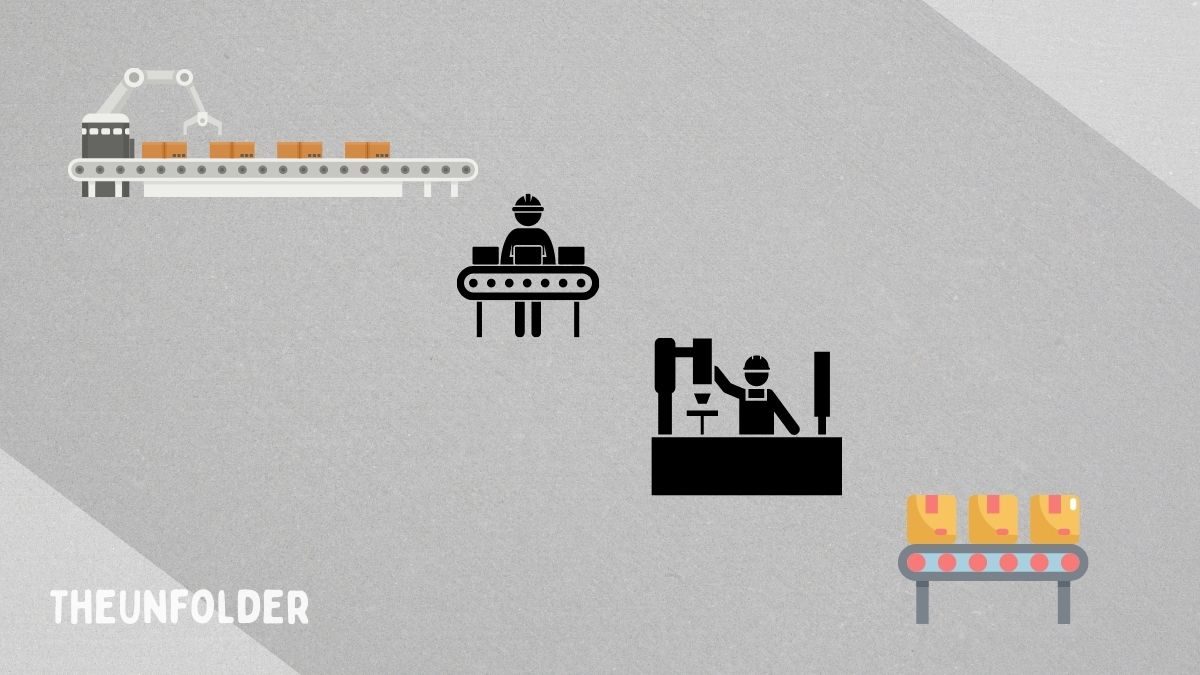Apple’s iPhones are one of the most iconic electronic devices ever made. Since its official release in 2007, the company has sold over 2.2 billion individual units.
The devices are titled game-changer in the field of smartphones for their technology. With the ever-growing fame of iPhones, the demand for the devices has also exponentially increased. But have you ever wondered where iPhones are made?
Also read: Where are Samsung phones made? It’s more than one country
iPhones are designed in California. However, they are neither the products of a single factory nor produced in a single country. Apple products source their materials from factories and manufacturers from all over the world.

Apple’s Production Strategy
When it comes to iPhone production, there are two key parts: manufacturing and assembling. That means a single iPhone contains components that could be sourced to many different countries.
Manufacturing is done in various factories located worldwide and then imported to one of the assembling plants to put it together and make the device ready for the market. The final product is then shipped out to sales centres all across the globe.
The reason behind such a production strategy is to deliver the best quality Apple phones at optimal prices and cost of production.
Where does Apple obtain its products from?

Even though the designs belong to Apple, it tasks companies from worldwide to manufacture individual products for its iPhones. It has contracts with major companies such as Samsung, LG, Toshiba, Sony, and much more to make some of its parts.
Also read: How to add multiple pictures in a single Instagram story
For example, the battery used in an iPhone is made by Sunwoda Electronics, based in China. The camera is made by Qualcomm, which has plants in various countries such as Brazil, China, India, etc. The glass screen of the iPhone is made by Corning, which operates over countries such as Australia, Japan, Malaysia, etc. Its processors are made by TSMC, a tech manufacturing giant based in locations such as China, the US, Singapore, etc.
Foxconn and Pegatron
There are two major companies tasked with assembling iPhone parts and making the complete device – Foxconn and Pegatron.
These Taiwan-based companies compile all the materials and components imported from various parts of the world into the iPhone.
Both Pegatron and Foxconn operate multiple assembling plants located in many countries, such as Thailand, Singapore, Malaysia, South Korea, the Czech Republic, Japan, etc. However, the largest assembling unit for the Apple iPhone is the unit in China.
Though both the companies are major iPhone assemblers, Foxconn produces the majority of devices sold worldwide, making it the single largest iPhone producer.
Shenzhen iPhone Plant
Operated by Foxconn, this mammoth unit is located in Shenzhen, China. This is where a majority of Apple products are made. Spanning over more than 1.2 miles, this factory employs about 350,000 workers and has residential buildings, parks, stores, and over an estimated 10 million residents.
The area around the iPhone manufacturing plant has been greatly transformed by its prosperity, creating a city often dubbed ‘the iPhone city’ and ‘Foxconn city’.
The abundant availability of cheap labour, lower rates of management, and highly skilled workforce allowed the Chinese plant to flourish, making it the largest private workforce employer in mainland China.
Also read: How to Change Your Background in Google Meet
The assembly-line model and long working hours make this plant efficient in production. This unit can pump out up to 500,000 complete iPhones per day!
Apple has a majority of its production done in China; however, there are plans to move and expand to other countries such as India.
This means that when you hold an Apple iPhone in your hand, you hold a device that comprises parts that came from halfway across the globe. The iPhone is truly a product that showcases and emphasizes the true power and efficiency of globalization.






